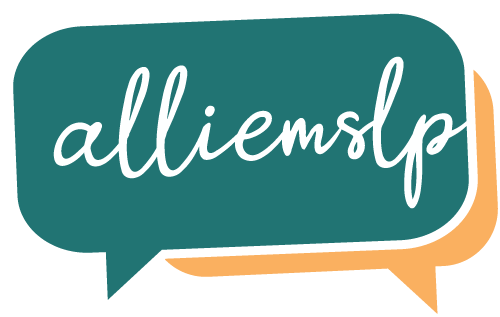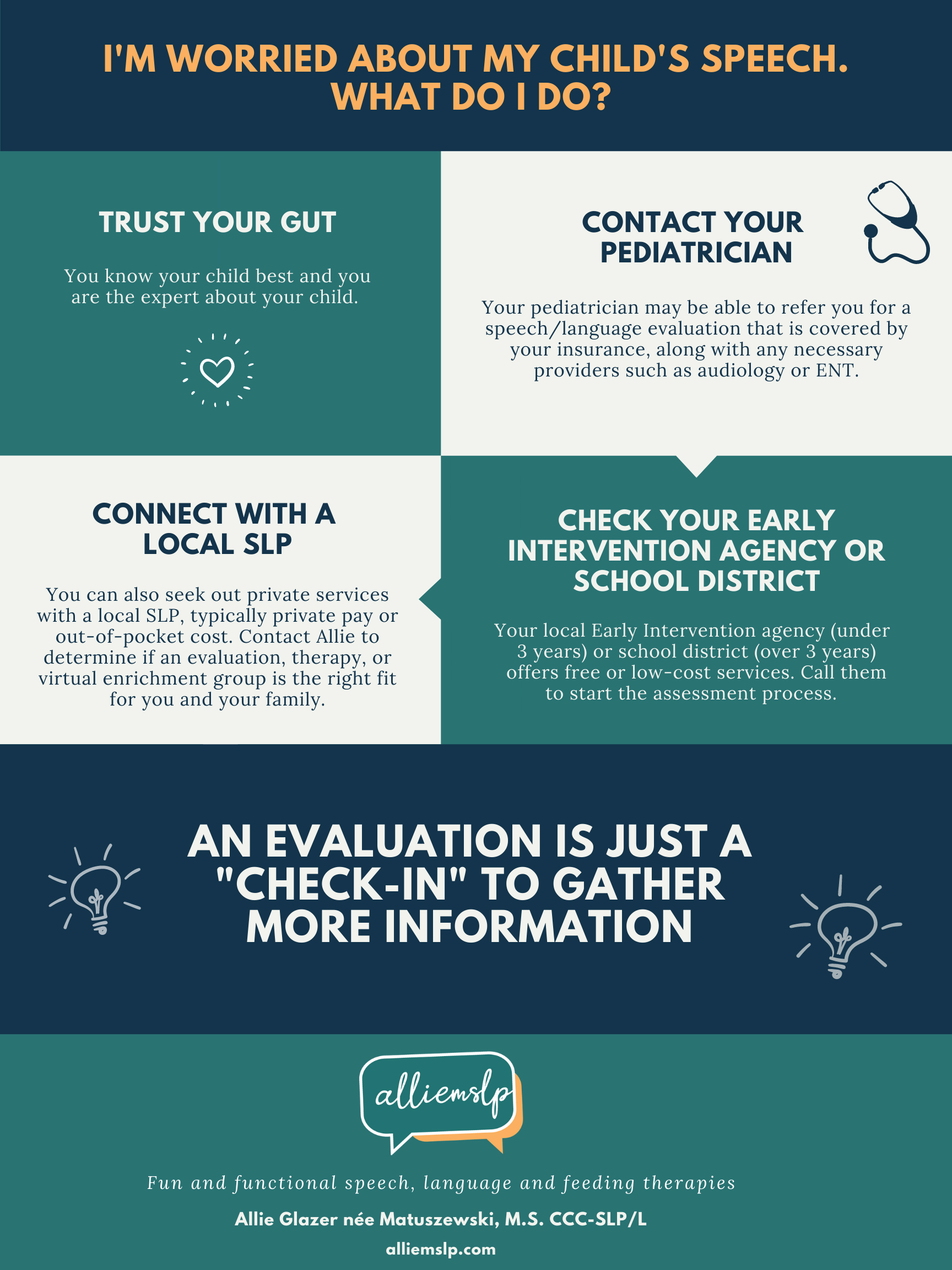3 Ways to Find an SLP
As a parent, you’re always looking out for your child and celebrating their successes, from their first smile to their first words. You’ve read the books, heard advice from your friends and family, and experienced the rollercoaster emotions of parenthood.
Your child is learning all sorts of things from you, like how to get dressed, where their diaper goes when it is “yucky”, and which faces are the funniest to show to Grandma over video chat. But, what happens when those first words come a little later than expected? Or, don’t come at all? A spiral of worry, fear, guilt, and anxiety may ensue. You might find yourself asking: Why isn’t my baby meeting their milestones? Something is “wrong” but what do I do?
Trust your gut. There is nothing stronger than a parent’s intuition, as you know your child best. Remember that you are the expert about your child.
If you have concerns about speech/language development, even if it’s just checking to make sure development is on the right path, keep reading to learn 3 ways to connect with an SLP for a “speech check-in”—a.k.a. a speech and language evaluation.
So, What is a Speech-Language Pathologist (SLP)?
A licensed and certified Speech-Language Pathologist (SLP) is a trained professional who has a master’s degree in communication development. All SLPs have the same baseline of training, as defined by their master’s degree, but differ in what populations and settings they serve. An SLP who works in acute care in an adult hospital has different knowledge than an SLP who works in pediatric home health.
How to Find an SLP for Your Child
1. Contact Your Pediatrician
Reach out to your pediatrician with your concerns. They will refer you for an evaluation with a certified and licensed Speech-Language Pathologist (SLP) that is covered by your insurance, along with any necessary disciplines such as ENT/audiology.
Your pediatrician should take your concerns and questions seriously and support your intuition. If your pediatrician says “let’s wait and see” or stalls on a referral, get a second opinion. You’ve already “waited to see” if your concerns would go away and speech would get better on its own. If you are still concerned, it hasn’t. The earlier intervention starts, the earlier goals can be met and the earlier your child can graduate from therapy!
2. Check Your Local Early Intervention Agency or School District
For children under 3 years of age: Self-refer to your local Early Intervention agency, which provides services and supports to babies and young children with developmental delays/disabilities and their families (including speech therapy). Early Intervention agencies typically provide low- or no-cost services, as these programs are federally funded.
In California, it is your local Regional Center through Early Start. In Illinois, it is your local Child and Family Center. To find your local organization, search the program directory provided by the CDC.
For children over 3 years of age: Reach out to your local school district, as you may be eligible for school-based services (which begins with a free evaluation to determine eligibility). School-based services are free, as they are funded by the public school district.
3. Connect with a Local SLP
You can also seek out private services with a local SLP—like alliemslp!—to chat through your concerns and determine if an evaluation for your child is warranted. Alliemslp Speech Therapy Group, Inc. currently offers private therapy and group enrichment classes. Some therapists also work as part of an agency called Therapista where they serve birth-3 clients through Golden Gate Regional Center or Regional Center of the East Bay.
Private services through a local SLP are typically private pay or out-of-pocket cost. Visit the American Speech-Language-Hearing Association (ASHA)’s website to Find a Professional SLP near you.
Remember: You’ve got this!
A speech therapy evaluation is just a way to “check-in” and gather more information about your child’s communication development. Not all children need speech therapy, but many parents feel relieved when they take that “first step” of requesting an evaluation. By doing so, you are taking an active role in supporting your child’s development, and your family’s overall well-being. It’s never too late to get more information.
It’s estimated that “nearly one in 12 children ages 3–17 has had a disorder related to voice, speech, language or swallowing in the past 12 months, and more than half of them receive intervention” [National Center for Health Statistics (NCHS) Data Brief, 2015]. The National Institute on Deafness and Other Communication Disorders (NIDOCD) acknowledges that “early diagnosis and intervention services have shown to be effective in treating communication and swallowing disorders, leading to better quality of life, and in some cases, better academic success” (NCHS Data Brief, 2015).
For some children, a few environmental and strategic interaction “tweaks” will be enough to kickstart your child’s communication. For others, an assessment may identify an underlying medical or developmental condition that is at the root of the delay.
Schedule your free consultation with alliemslp
Contact alliesmlp Speech Therapy Group, Inc. today to set-up a complimentary 15-minute phone consultation to learn more about our services and if they’re a right fit for you and your family.
Source: Black LI, Vahratian A, Hoffman HJ. Communication Disorders and Use of Intervention Services Among Children Aged 3-17 Years: United States, 2012. NCHS Data Brief. 2015 Jun;(205):1-8. PMID: 26079397.


